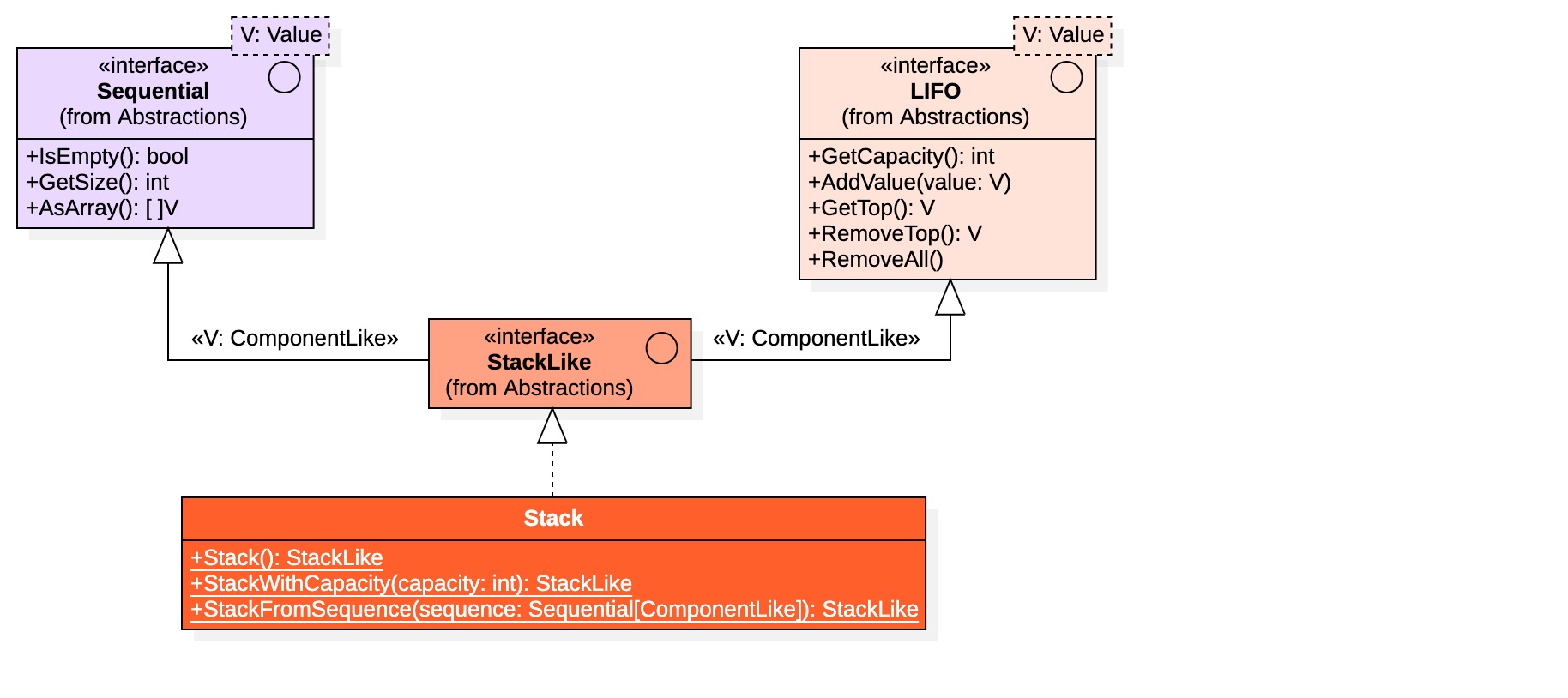Stacks - bali-nebula/go-component-framework GitHub Wiki
Overview
A stack is a collection that supports last-in-first-out (LIFO) semantics. Each value in the stack is a component.

A Quick Example
To whet your appetite, here is some short example code that demonstrates the behavior of stacks.
package main
import (
fmt "fmt"
bal "github.com/bali-nebula/go-component-framework/v2/bali"
)
func main() {
// Create a new stack from a string containing Bali Document Notation™.
var stack = bal.Stack(`[
$first
$second
$third
]($type: /bali/types/collections/Stack/v1)`)
fmt.Println("The initial stack:", bal.FormatEntity(stack))
// Peek at the value on top of the stack.
var top = stack.GetTop()
fmt.Println("The top of the stack:", bal.FormatComponent(top))
// Remove the value from the top of the stack.
var value = stack.RemoveTop()
fmt.Println("The value from the top of the stack:", bal.FormatComponent(value))
fmt.Println("The remaining stack:", bal.FormatEntity(stack))
// Add another value to the top of the stack.
stack.AddValue(bal.Component(`$fourth`))
fmt.Println("The updated stack:", bal.FormatEntity(stack))
// Remove the value from the top of the stack.
value = stack.RemoveTop()
fmt.Println("The value from the top of the stack:", bal.FormatComponent(value))
fmt.Println("The remaining stack:", bal.FormatEntity(stack))
// Remove all values from the stack.
stack.RemoveAll()
fmt.Println("The empty stack:", bal.FormatEntity(stack))
}